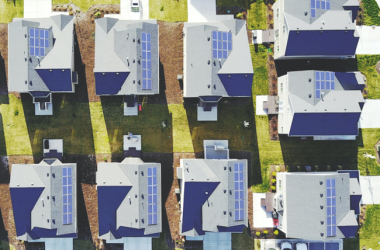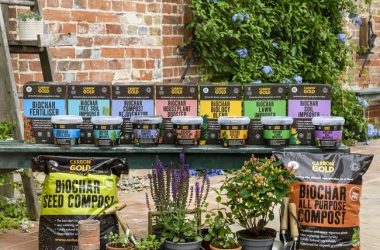Last Updated on: 13th May 2024, 03:37 pm
Five months after its launch at the Seventh Assembly of the Global Environment Facility (GEF), the Global Biodiversity Framework (GBF) Fund’s Council wrapped in February in Washington, D.C., beginning the herculean international effort to meaningfully reverse ecosystem destruction by 2030.
Entirely devoted to accelerating the implementation of the Kunming-Montreal framework– sometimes hailed as the “Paris Agreement for Nature” – the GBF Fund aims to provide streamlines funding access for indigenous peoples and local communities, with the GEF’s 186 member-countries agreeing to invest over $1 billion in biodiversity conservation, nature renewal and climate action projects at its inaugural Council meeting.
While the GEF’s ambitious investment and focus on local collaboration are crucial, the Convention on Biological Diversity Secretariat has rightly acknowledged that achieving rapid, lasting progress will require significant levels of domestic resources from “the private sector and innovative mechanisms” – funds which can be generated with a conservation model that empowers local communities to derive long-term economic value from their natural assets.
Cementing fragile anti-deforestation gains
Given their vital roles in absorbing carbon, supporting biodiversity and regulating global temperatures, the importance of protecting the world’s rainforests can hardly be overstated.
Encouragingly, recent conservation efforts have made some headway – deforestation in the Brazilian Amazon dropped by over 20% last year, while the decade from 2012 to 2022 saw a significant and continuous decline of palm oil-fueled destruction in Indonesia’s rainforests. Yet, with newly-published research indicating an emerging comeback for Indonesian deforestation and a potential 2050 ‘tipping point’ for up to half of the Amazon due to devastating, climate change-driven drought, rising temperatures and deforestation, interventions are urgently needed to sustain fragile progress.
In this hostile context, the emerging conservation model represented by initiatives such as the Mejuruá Project offer a promising way forward. Spanning roughly 900,000 hectares of Amazonian rainforest, Mejuruá has brought together project leader BR Arbo Gestão Florestal(BR ARBO) – a Brazilian sustainable forestry management company – with a broad coalition of local government officials, NGOs, academics and resident associations in the municipalities of Carauari, Juruá and Jutaí to help save the Amazon while delivering perpetual economic and social change within communities.
Eschewing outdated ‘preservation’ approaches, Mejuruá is actively supporting local residents in extracting both environmentally and economically sustainable value from their considerable natural resources. Through its sustainable forest management component – including reduced-impact logging and anti-deforestation patrolling – sawmill and biomass power plant, the project will create over 400 new direct jobs while supporting another 2000 downstream jobs in the surrounding area. Supplemented by income from a voluntary carbon credit scheme, Mejuruá’s economic activities will provide viable, long-term deforestation alternatives essential for incentivising and empowering local communities to lead rainforest conservation efforts and to fight against deforestation agents.
Ending oceans’ tragedy of the commons
As with rainforests, the unchecked exploitation of the world’s oceans has created an ecologically and socioeconomically-disastrous situation.
According to the U.N.’s FAO, overfished stocks have tripled over the past 50 years, with over one-third of fisheries currently “pushed beyond their biological limits.” Recent evidence from the IPBES shows that marine biodiversity is experiencing an “unprecedented” decline, with the portion of the ocean significantly-altered by humans soaring from 40% to two-thirds in roughly a decade. Beyond its massive disruption of marine ecosystem balance and exacerbation of climate change’s impacts, decades of overfishing have gravely threatened some 600 million livelihoods in coastal communities – not to mention global food security.
Since 2017, the GEF-funded Coastal Fisheries Initiative (CFI) has been working with local fishing communities to cultivate sustainable practices in countries including Indonesia, where local fisherman in the Southeast Sulawesi Province have warned of drastically-reduced daily catches in recent years. While coordinated by a host of multilateral organisations, CFI has extensively tapped into the “on-the-ground knowledge and energy of scores of individual and local organisations” to help restore Indonesia’s coastal ecosystems.
Through its workshops and exchange trips, CFI has shared best practice and boosted Indonesian coastal communities’ sustainable fishery management capacities. Moreover, CFI’s private sector collaboration created the CFI Challenge Fund, a World Bank and Indonesian Government-run initiative aimed at attracting investment and business plan support for sustainable fishing endeavours. By focusing on the long-term profitability of sustainable marine businesses – including through funding and technical support for alternative sectors like seaweed farming – the Fund is empowering local fishing communities to meet their economic needs while fueling marine biodiversity recovery.
Breathing new life into the earth
Beyond rainforests and oceans, the degradation of the world’s soils poses an increasingly severe menace to biodiversity and global food security, with an amount roughly equivalent to one-third of Germany lost every year.
The UN estimates global soil degradation at up to 40%, a dire situation threatening mass crop failures, loss of livelihoods and ecosystem collapse while greatly undermining soil’s considerable carbon sink function – second only to oceans. Africa’s arid regions have been hit particularly hard, where local farmers face an ever-growing existential challenge to feed their communities as the impact from years of ecologically-harmful farming practices combines with intensifying droughts.
Launched by a coalition including over 30 African countries, the African Union Development Agency (AUDA) and the World Resources Institute, AFR100 aims to restore 100 million hectares of degraded farmland by 2030, offering a level of ambition to match the scale of the challenge. Summarising this innovative project’s philosophy, AUDU sustainability head Mamadou Diakhite has asserted that “we have thousands of entrepreneurs and community-based organizations ready to take on…land degradation…Let’s invest in them and provide the required support.”
In Kenya, an AFR100 project has brought together a local agribusiness firm, Afrex Gold, with smallholder farmers to restore severely degraded farmland. By providing training in innovative techniques and seedlings best-suited for sustainable agroforestry systems, Afrex Gold has helped local farmers boost yields and income while restoring soils. Moreover, the company’s participation in the AFR100-associated Land Accelerator programme has enhanced its capacities to help build economically-viable sustainable businesses in land restoration.
The innovative conservation model embodied by these projects offers crucial economic alternatives to unsustainable habitat destruction, preserving the longevity of natural resources and the economic lifeline they provide for local communities. Given the urgency of the world’s multi-pronged biodiversity crisis, the most ecologically-vulnerable countries require a rapid deployment of similar community-driven, long-term profit-generating initiatives, complemented by bolstered multilateral finance, as reflected by the GEF’s historic GBF Fund investment.








